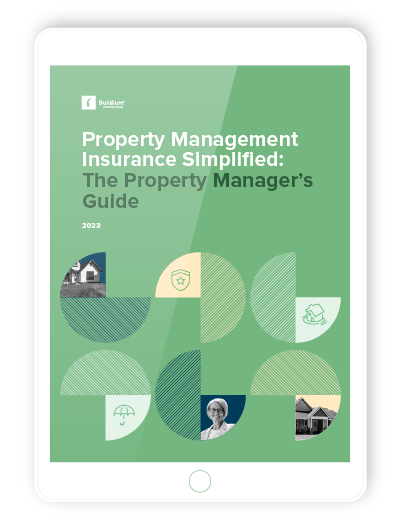Property management insurance eases the financial burden of unforeseen events so you can focus on your tenants, your owners, and your growing business. But with so many options to choose from, where do you start?
Download our latest guide and we’ll show you how to…
- Evaluate policies for your property management business
- Ensure you’re getting the best protection at the best rates
- Use insurance to boost revenue while staying covered
- And more

